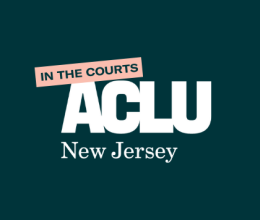
TRENTON – The New Jersey Supreme Court today ruled that traffics stops for unobstructive license plate frames are pretextual and could violate the constitutional rights of individuals. The case, State v. Roman-Rosado, centered on a traffic stop for a license plate frame that covered 10 percent of “Garden State,” resulting in a subsequent search of the vehicle. The ACLU of New Jersey appeared as a friend of the court to argue that the stop was pretextual, the search was unlawful, and broad interpretation of the statute disproportionately impacts people of color.
Traffic stops for license plate frames impact more than 100,000 New Jerseyans each year. Data shows that in New Jersey, traffic stops and their resulting consequences have an overwhelming and disproportionate impact on people of color, making today’s opinion an important step toward racial equity in New Jersey.
The following statement can be attributed to ACLU-NJ Senior Staff Attorney Karen Thompson:
“Knowing that police officers will no longer be able to stop a vehicle for a license plate frame “violation” as long as the plate is legible is an important moment for racial and civil rights in New Jersey and comes as a relief for the more than 100,000 New Jerseyans these stops impact each year. By placing limits on this long-standing practice, New Jersey is beginning to remove the veil that has acted as a legal justification for pretextual policing and instead prioritize the rights of people. Prioritizing rights over manufactured “reasonableness” creates real opportunities to hold police accountable and to stop the use of ambiguously broad laws as a way to excuse racialized policing.”





